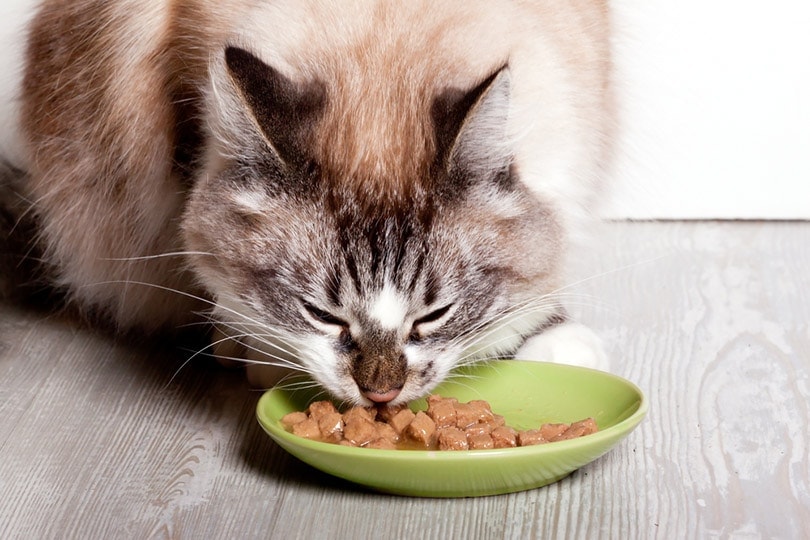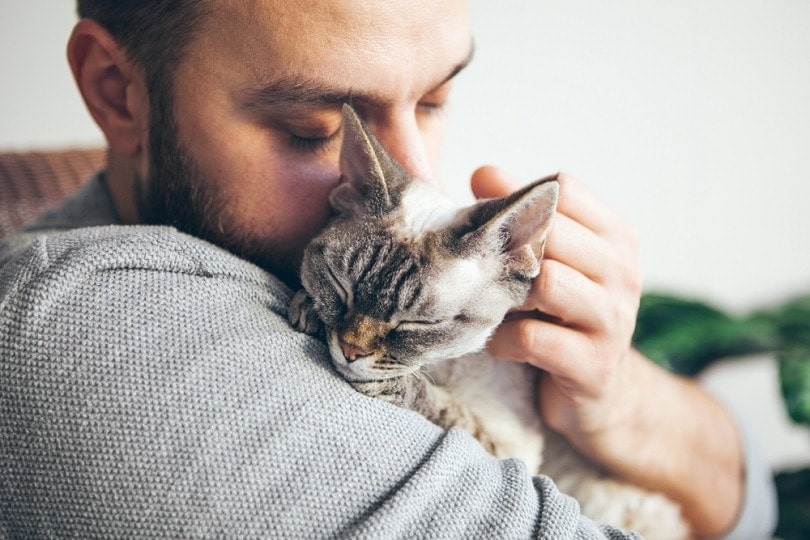Why Does My Cat Sneeze on Me? 7 Common Reasons
By Ed Malaker
Updated on
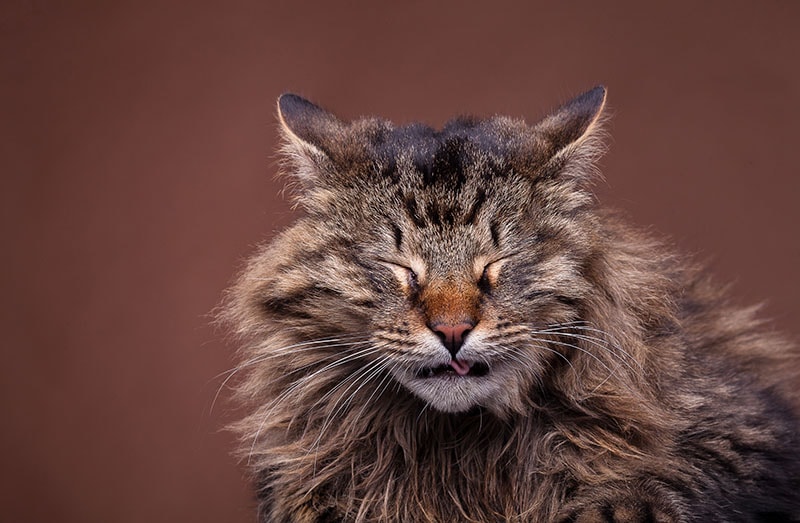
Click to Skip Ahead
Sneezing is a natural occurrence for humans, as it helps expel irritants and foreign matter from the nose. But many people are surprised to see cats do it. It’s perfectly natural for cats and many other animals, including dogs, chickens, lizards, and even elephants, to sneeze. It’s usually not concerning, but if it’s persistent or accompanies other symptoms, it could indicate an underlying health problem. So, keep reading as we list several reasons that your cat might be sneezing to help you be better informed.
The 7 Reasons Your Cat Sneeze on You
- Treatment: No cure
A common viral infection called feline herpesvirus affects 80% to 90% of cats. It attacks the upper respiratory system and can cause sneezing accompanied by a discharge from the eyes and nose. Unfortunately, there is currently no cure for the feline herpesvirus, and it will stay with them throughout their lives. Other viral infections that can affect your cat and cause sneezing include influenza and calicivirus.
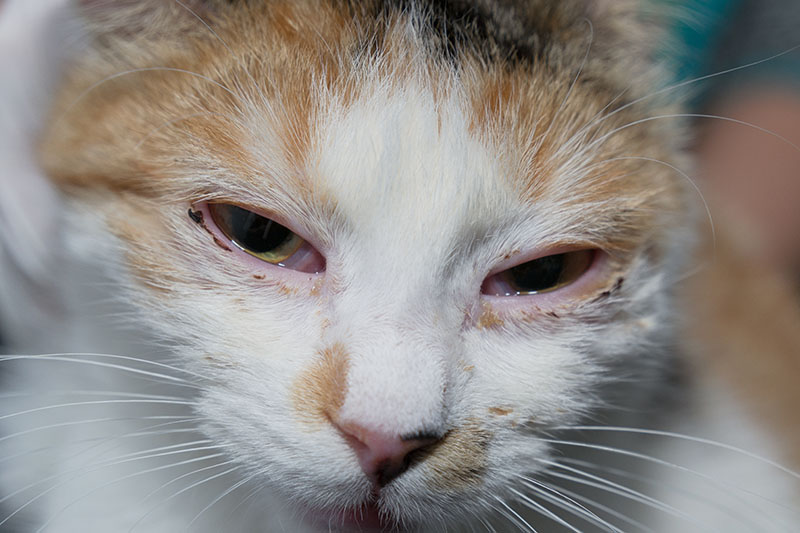
2. Bacterial infections
- Treatment: Antibiotics
Bacterial infections are easy to identify because they will cause a yellow or green discharge to emerge from your cat’s eyes and nose. It almost always accompanies a viral infection, which causes the initial damage that enables the bacteria to set in and grow. Antibiotics can help your cat breathe easier and reduce sneezing and other symptoms.
3. Foreign material
- Treatment: Sneezing
Like with humans, inhaling foreign material like dust or pollen can cause cats to sneeze. Sneezing will usually expel the foreign debris, but in some cases, it can get stuck, causing your cat to sneeze repeatedly. In this case, your cat may require surgery to remove the obstruction.
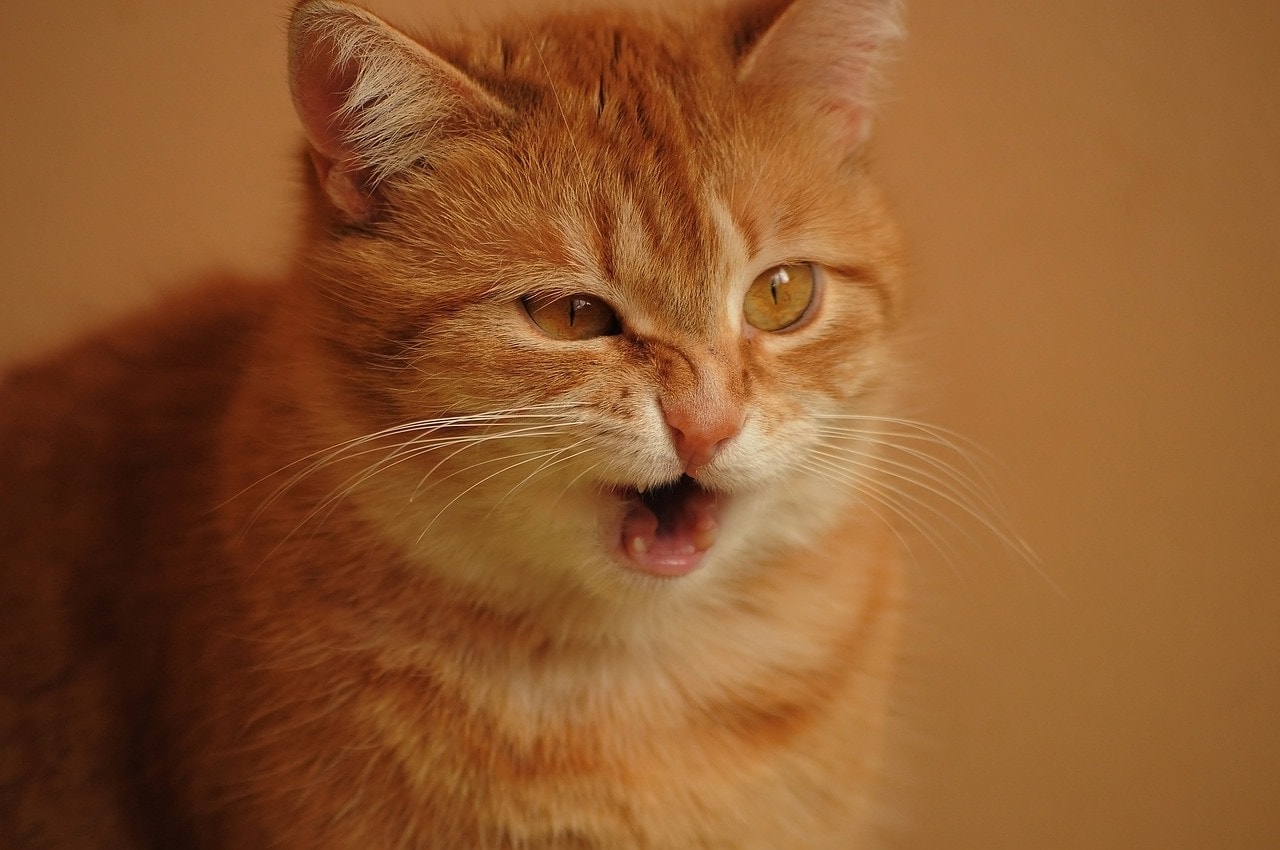
4. Dental disease
- Treatment: Dental hygiene
Dental disease is a common cause of sneezing in cats. If the roots of the teeth on the upper jaw or near the nasal passages become infected and inflamed, it can lead to frequent sneezing. Brushing and checking your cat’s teeth frequently can help you avoid dental issues.
5. Tumors
- Treatment: Surgery
Older cats can grow tumors on the inside of the nasal passageway, which can lead to frequent sneezing. Unfortunately, nasal tumors have a poor prognosis because they are difficult and painful to remove.
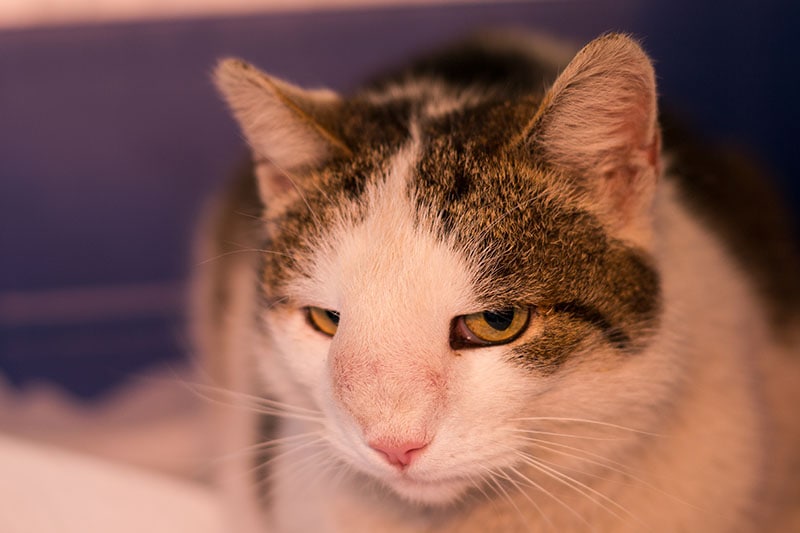
6. Fungus
- Treatment: Antifungal medicine
One common cause of sneezing in cats, though not as common as a viral or bacterial infection, is a fungal infection. A common fungus called cryptococcus is usually to blame, and luckily, it’s treatable.
7. Inflammation
- Treatment: N/A
Anytime the nose or nasal passageways get inflamed, sneezing can occur. Dry air, swollen glands, and even an insect bite can be responsible.
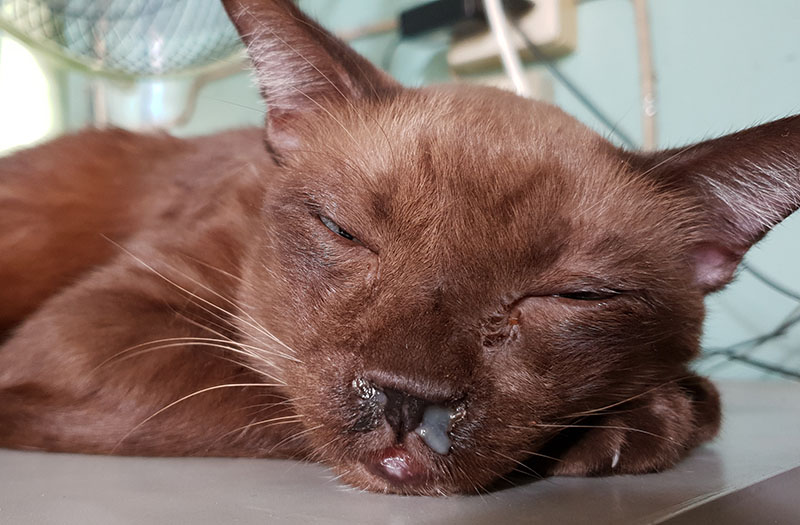
When Should I See a Vet?
We recommend contacting your vet if your cat starts sneezing incessantly, and it lasts for more than a few hours. It’s also a good idea to call the vet if your cat is frequently sneezing for more than a few days, especially if you also notice a loss of appetite, weight loss, or nasal discharge.
How Do Vets Determine the Cause of Sneezing?
Your vet will usually need to examine the cat physically to evaluate their overall health. They will also likely look at the teeth to see if dental disease could be part of the problem. They may take X-rays of the head and chest and do a computerized tomography scan, which requires local anesthesia. They may also perform a rhinoscopy, inserting a camera into the nose to search for tumors, fungus, and other problems. They often take a biopsy of the walls of the nasal cavity and flush the nasal passage.
What Is the Treatment for a Sneezing Cat?
Treatment primarily depends on the underlying cause but usually involves antibiotics flushing the nasal passageway and treatments like humidifiers, steroids, decongestants, and surgery.
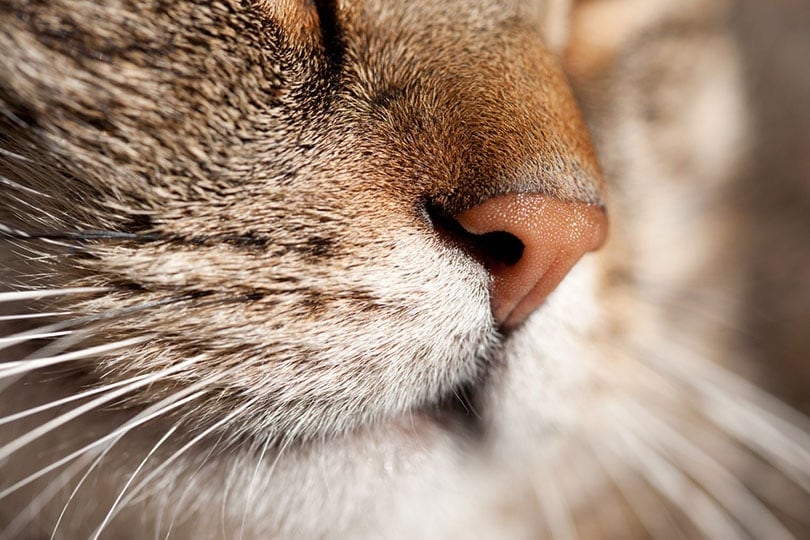
Conclusion
Cats will sneeze if they inhale dust or pollen, just like humans do. However, if they sneeze frequently and persistently, it could indicate an underlining viral infection that needs attention, like feline herpesvirus. Yellow and green discharge is a symptom of a bacterial infection that usually accompanies a viral infection and can be painful for the cat. Fortunately, many bacterial infections are treatable with antibiotics. Other causes of sneezing include fungal infections, dental disease, and tumors. If you notice your cat frequently sneezing, take them to the vet to determine the cause quickly and get them on the mend.
Featured Image Credit: DC Studio, Shutterstock

